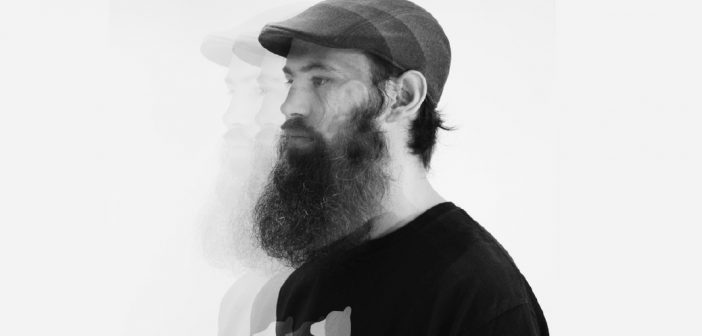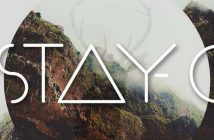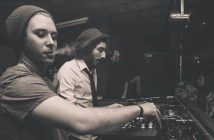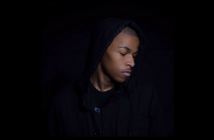
Who are you? Name, age, hometown and profession.
My name is Luke Langston and artist name is TehSynes, I’m from Cape Town and I teach, make, and perform electronic music. Been living in this body for 32 years now and my favourite colour is blue.
What’s the meaning/reason behind your DJ name? More importantly, how do you pronounce it?
I discovered TehSynes around 2010. It’s the vehicle through which I share my “signs” so to speak. Its pronounced The Signs. I wanted to be able to showcase all the music I produce under one banner. Previously, my stuff was more genre or subgenre specific and having more than one alias can get confusing! It’s actually been quite liberating, I’ve found there’s more purpose to my music as I’m allowing it to develop its own form.
Tell us about your first encounter with music/CDJs.
I guess I became a DJ by accident, people knew me for the music I made and would ask me to play at their parties. It was fun but only after I got into drum n bass and understood what it felt like loud, did I start to take things more seriously. I used to borrow my mates’ decks for the weekend and BWise and myself would record hours and hours of terrible mixes of good tunes.
You’re big into your teaching and lecturing. Where does your passion to educate come from?
Teaching can be very rewarding, it takes a lot of time to figure out how everything works and I like to help. I’ve always felt drawn to teaching in some way so it was a natural progression. When I started out in the scene, there weren’t many DJ/Production courses, you would study Sound Engineering and then figure the rest out yourself. The internet changed everything, but there is just so much to digest out there and some people need a bit of guidance. That’s all I aim to do, help the person along as opposed to bombarding them with all this info they might need. Another thing I should add that I think helped inspire me was starting up in a scene where people like Counterstrike and the African Dope crew were always down to share knowledge.
Coming from the Cape Town scene and being in Joburg for Addictshun as well as Moksha, how would you compare the two cities? Do Jozi artists generally have a different sound to Cape Town artists?
I’ve been trying to figure out what gives certain places in the world their sounds and it boils down to a billion things from climate to demographic to history and popular culture. When I played my first show in Joburg, I was quite nervous because most of the producers and DJs I knew on the lineup at the time were either into dubstep and drumstep or rolling dnb, so I didn’t know what to expect from my liquid set. I even packed a bunch of heavier tunes incase, which if you know me well, it’s too heavy to play out. I learned a very valuable lesson that weekend: trust your vision and the dance floor and don’t always trust the promoter.
Favorite places that you’ve played at?
ADDICTSHUN: I really love the new And club where Addictshun is at, sjoe, there’s this sweet spot just in front of the DJ booth where the bass is so epic.
SCIENCE FRIKSHUN: I’ve only been to one official event, can you believe it? ! I feel like I’ve missed out on half of the DNBSA history books! I played my first Science Frikshun this year and it was awesome, I got to open the party up. I really look up to Rude One’s production standards and I’ve been lucky to at least attend and play on stages he’s put on at festivals like Twilight which is still one of the raddest venues I’ve played at.
REACTION: I got to do a Ghost Snare set there earlier this year, that was so epic, mono_sono and I took things way too far than we should have, but the energy was flowing really nicely. The response was epic to say the least.
HOMEGROWN & PRESSURE: Mercury live has one of the best rooms for drum n bass I’ve ever been in. I dunno what it is, but when the system is tuned just right, you cannot escape the bass wherever you go in the club! Since Homegrown ended we’ve been super lucky that Pressure took over the space, ensuring we have a regular dosage of high quality drum n bass of all styles.
COLD TURKEY: Was a bring and braai bass music party that happened every second Sunday: it’s no longer happening but it’s still influencing us today. It was a meeting point for everybody, a modern day indaba, there was something there for everyone to enjoy.
CTEMF: By far one of my fave music festivals in the world, I can’t believe I even got to play there, this year they hosted Goldie and the year before that Noisia played. You have no idea how awesome those sets were!
Any upcoming female acts to watch out for in Cape Town?
Dakota has been making some major waves in the local dnb scene of late, I’d suggest checking her out: she almost made it up to Jozi this past weekend, pity about the cancellation, but I know Green is on the case to get her back soon!
The music industry can be competitive at best. What are the three things it takes to make it as a professional DJ/producer?
Samsung released a fridge with wifi and a touchscreen on it, I bet you we could find someone to hack it to load ableton and make and upload music from it. We’re in an age where our phones have more processing power than the machines Goldie made Timeless on! Dillinja made dancefloor bangers with 12 seconds of sampling time. You can make music on just about anything now and share it with thousands of people around the world in seconds! Tirade aside. Invest your time in the right things, be patient and fair because you can never stop learning. It’s not easy, the industry is small and changes very quickly – so build a team of like and unlike minded people who you trust, lay a foundation and work together for the benefit of each other. One person alone cannot build or make a scene: spread that mentality everywhere.
Interview by Mbali Ndhlovu





